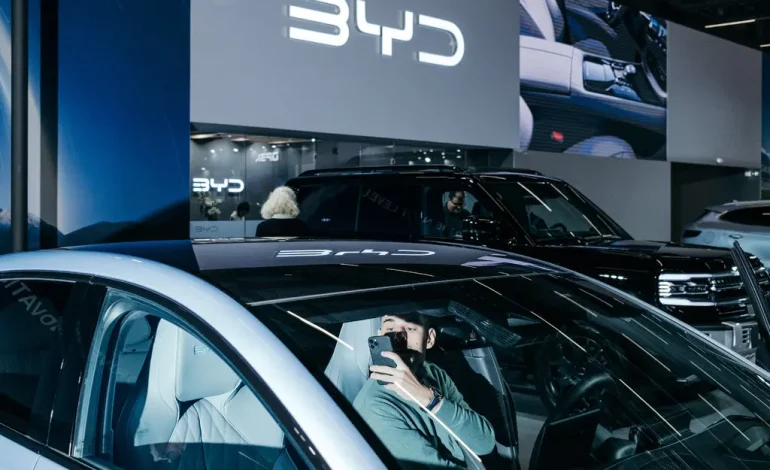Chinese electric vehicle (EV) makers are ramping up efforts to build manufacturing plants in Europe as they prepare for the possibility of higher tariffs on imported cars, the New York Times reports.
Leading the charge is BYD, China’s top EV producer, which is constructing a large assembly plant in Szeged, Hungary. Other automakers like Chery and Geely are exploring partnerships and new facilities across the continent to avoid potential tariffs and better compete in the European market.
The move comes as the European Union (EU) considers increasing tariffs on Chinese electric vehicles by up to 35.3%, a decision expected by October 30. These new duties would add to the existing 10% tariff on EVs entering the bloc. Chinese automakers, eager to expand their presence in Europe, are reacting swiftly by establishing local production to sidestep these higher costs.
BYD’s Hungary plant is part of a broader strategy to boost its market share in Europe. The company has already partnered with distributors in 19 countries and sponsored major events like the European Championship soccer tournament to raise its profile. Production at the new Szeged facility is expected to begin next year, with plans to create thousands of jobs.
Other Chinese carmakers are following similar paths. Chery has teamed up with Ebro EV Motors to produce electric vehicles in Barcelona, while Stellantis, owner of brands like Peugeot and Fiat, has partnered with China’s Leapmotor to start EV production in Europe this fall. Geely, which owns Volvo and Polestar, is also scouting for new production sites in Europe.
Chinese automakers see Europe as a key market, with their EV sales growing from 0.4% of the European market in 2019 to 3.7% in 2023. Analysts believe that building factories in Europe offers advantages for both sides. The European auto industry would gain jobs and access to advanced technology, while Chinese companies could avoid tariffs and cut shipping costs.
Despite competition from European brands, Chinese automakers are determined to carve out a niche in the region. Victor Yang, a senior executive at Geely, emphasized their commitment to Europe.
“Even if some in Europe turn against us, we will never turn against the European market,” he said.
The shift to local production also reflects broader concerns over supply chain security, with automakers like BMW relying on Chinese suppliers for key parts. By producing more vehicles in Europe, Chinese companies can align with European automakers seeking stable, cost-effective supply chains.









